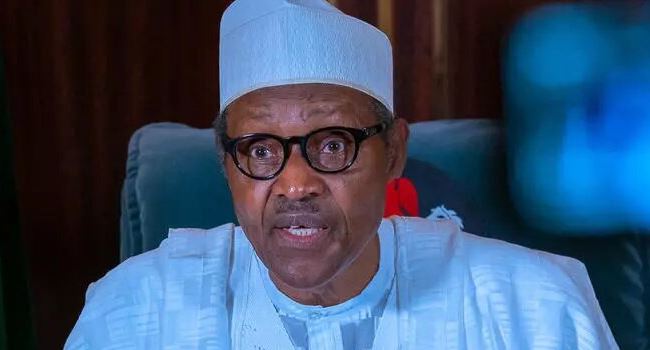Business
Buhari bans forex on all food imports into Nigeria

President Muhammadu Buhari Thursday ordered the Central Bank of Nigeria (CBN) to call off issuance of foreign exchange for food and fertiliser imports, according to a statement by his spokesman, Reuters said.
A related directive was given last year that the nominally-autonomous bank only partially observed, with some food importers still having access to foreign exchange.
However, Thursday’s order will absolutely ban provision of forex for all imported food and fertiliser, the spokesman said. “Nobody importing food should be given money,” Buhari said.
Last August, government shut its land borders to imported goods, a move that not only pushed up its food prices but also catapulted inflation in Africa’s top economy, which has risen for 11 consecutive months, to its 27-month high of 12.82% in July.
That same month, Nigeria’s food inflation soared to 15.48%, 0.30% higher than that of the preceding month, the statistics office said in its inflation report for July. Food Inflation has been in the double digits for over three year.
Since his election in 2015, Buhari has made moves to reduce imports, especially agricultural products even though the country in most cases lacked adequate local alternative to make up for the banned products.
The Thursday’s food import ban could mean Nigerians are now confronting the third major threat to their livelihood and survival in barely one week, coming after the declaration of significant hike in electricity hike and the recent announcement of increase in the price of petrol.
The treble whammy is expected to have adverse implication for disposable income in Africa’s biggest country by population, where over 82 million people live on less than a dollar a day.
Bans on imports like rice have triggered rise in prices, triggering widespread frustration.
READ ALSO: Naira heads for gain against dollar as CBN resumes forex sales
Nigeria’s dollar reserves have been battered as the CBN spends billions of dollars on expensive programmes like propping up the naira despite double-digit inflation.
Even though banning food imports has often come across as government’s plan to promote self-sufficiency and ramp up local productivity, it is probable that the latest move is essentially targeted at defending government’s fast-depleting foreign, which had been on a free fall for months on end until rescue came its way in April when the International Monetary Fund (IMF0 granted the country a $3.4 billion rapid financing facility.
Analysts say the hike in petrol pump price triggered by the removal of fuel subsidy, increase in electricity tariffs and now the ban on food products may be connected to some of the conditions given to Nigeria by the IMF and the World Bank for accessing credit from them.
The country was hoping that its prayer for a $1.5 billion budget support facility from the World Bank would be answered last month but is yet to be offered the credit because of its inability to meet some of the lender’s conditions.
“There was no immediate, public reaction from the central bank to Buhari’s comments, though its governor was present at the meeting where the order was given,” Reuters said.
Join the conversation
Support Ripples Nigeria, hold up solutions journalism
Balanced, fearless journalism driven by data comes at huge financial costs.
As a media platform, we hold leadership accountable and will not trade the right to press freedom and free speech for a piece of cake.
If you like what we do, and are ready to uphold solutions journalism, kindly donate to the Ripples Nigeria cause.
Your support would help to ensure that citizens and institutions continue to have free access to credible and reliable information for societal development.




















